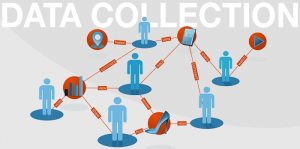 New technology continues to arrive on our doorsteps virtually every day or so it seems. This new technology continues to change the way in which the law enforcement community and the criminal justice system seek our data, the types of data they are looking for, and how it will be used. While all of this data may have exceptional value to these communities, we must at the same time constantly be very aware of the rights of our citizens.
New technology continues to arrive on our doorsteps virtually every day or so it seems. This new technology continues to change the way in which the law enforcement community and the criminal justice system seek our data, the types of data they are looking for, and how it will be used. While all of this data may have exceptional value to these communities, we must at the same time constantly be very aware of the rights of our citizens.
A New Report
On January 10th, the RAND Corporation published a report on the subject technology and the criminal justice system entitled Future-Proofing Justice. This report delves deeply into the criminal justice system, looking at it from several sides, including law enforcement, civil rights, and academia. The goal of the report was not to look for better ways for law enforcement to work within the world of technology, but rather to look at how these technologies may be used and how rights might be better protected before the situation reaches crisis level.
In the report, Brian Jackson, one of the researchers had this to say, ” One example is the encryption debate about people’s mobile devices, where depending on if you think about a mobile device as sort of the modern person’s diary, then it makes sense that with a warrant police should be able to get access to that,” he explained. “But there is some research that talks about the fact that these devices are gradually sort of taking on roles that are more akin to their mind and their identity. And as these devices become human implantable, even physically, will become part of the person.”
Going Deeper
The report takes a much deeper look at whether or not law enforcement should have the right to access a wide range of personal devices. This includes implantable medical devices that can pinpoint your exact location at any moment of the day or night. These devices contain a GPS unit that might make it possible for law enforcement officers to use the data to incriminate you.
The question also surrounds the use and sharing of data between different law enforcement agencies. At the same time, the context of any data collected has to be taken into consideration. For example, if a number of people are logged into the same database as a known gang member, it would be possible for police to mistakenly associate them with the gang.
This could render much of the data collected as virtually useless, yet the information still ends up in the hands of law enforcement, posing a serious risk to those persons’ right to privacy. The hardest part of the entire concept is that we are all becoming far more connected to the Internet of Things via smartphones and other personal assistance devices such as the new Amazon Echo. Does this mean that we as a people are willing to give up a percentage of our privacy simply to be more connected? And does it also mean law enforcement officers have a right to make use of any information they collect with impunity? These questions are only now being seriously taken into consideration with many new rules and laws likely to be passed in the coming years.
